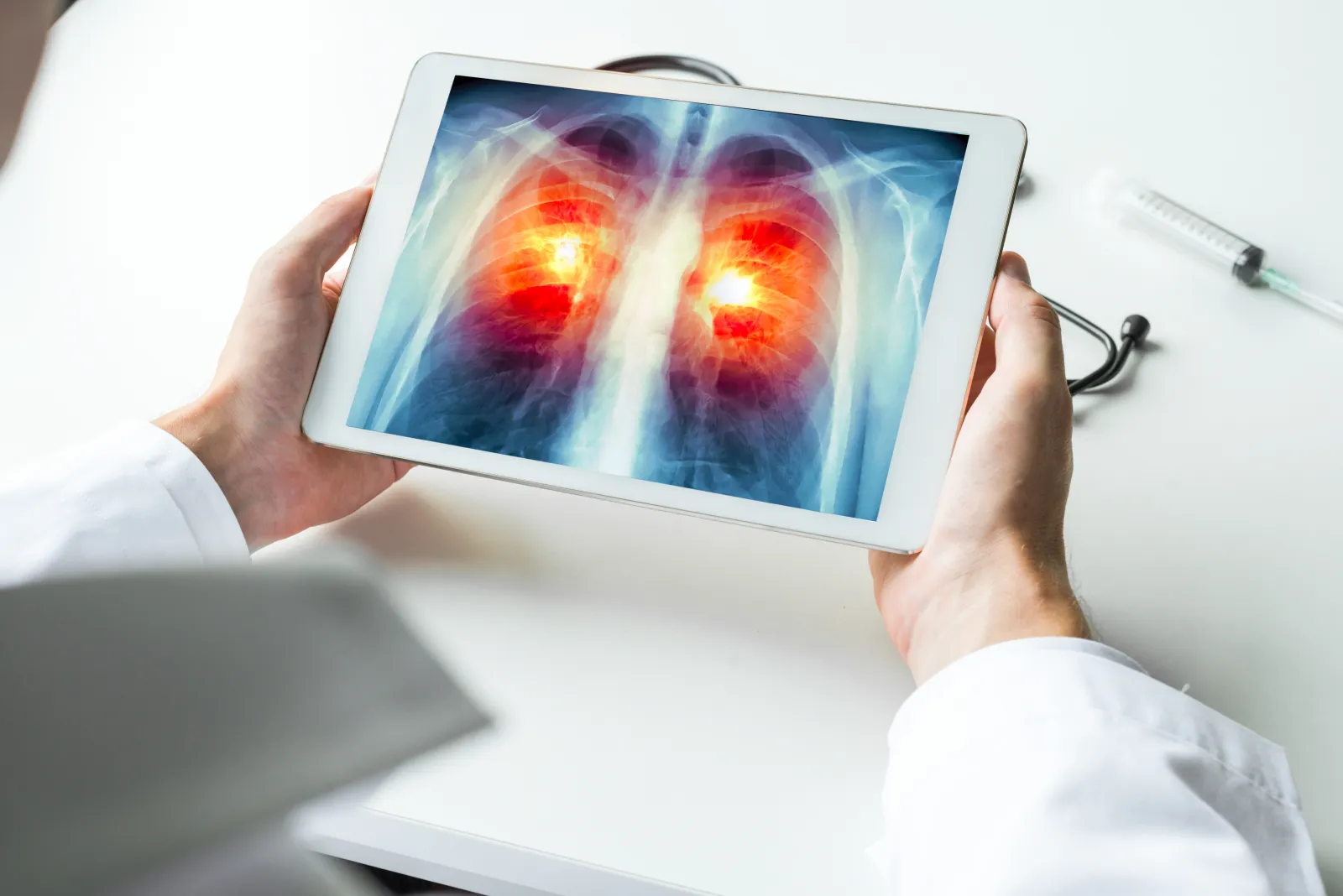
As part of National Lung Cancer Awareness Month, this week's blog focuses on the risk factors associated with lung cancer. Anyone can get lung cancer. Lung cancer occurs when cells in the lung mutate or change. Various factors can cause this mutation to happen. Most often, this change in lung cells happens when people breathe in dangerous, toxic substances. Even if you were exposed to these substances many years ago, you are still at risk for lung cancer. Listed below is are several of the most common causes of lung cancer, and what to do if you feel you may be at high risk.
Smoking
Smoking is the number one cause of lung cancer. It causes about 90 percent of lung cancer cases. Tobacco smoke contains many chemicals that are known to cause lung cancer. If you still smoke, quitting smoking is the single best thing you can do for your lung health.
Radon
Radon exposure is the second-leading cause of lung cancer. Radon is a colorless, odorless radioactive gas that exists naturally in soil. It comes up through the soil and enters buildings through small gaps and cracks. One out of every 15 homes in the U.S. is subject to radon exposure.
Hazardous Chemicals
Exposure to certain hazardous chemicals poses a lung cancer risk. Working with materials such as asbestos, uranium, arsenic, cadmium, chromium, nickel and some petroleum products is especially dangerous.
(Particle) Pollution
Particle pollution refers to a mix of very tiny solid and liquid particles that are in the air we breathe. Evidence shows that particle pollution—like that coming from that exhaust smoke—increases the risk of lung cancer.
Genes
Genetic factors also may play a role in one's chances of developing lung cancer. A family history of lung cancer may mean you are at a higher risk of getting the disease. If others in your family have or ever had lung cancer, it's important to mention this to your doctor.
One of the most effective methods of early detection and recovery in high-risk patients is lung cancer screening. which can find nearly 80% of lung cancers in their earliest stages, significantly increasing the chances for survival and recovery. Your doctor will assess several criteria to determine if you are considered high-risk for developing lung cancer. Your age, smoking history and the risk factors listed above are key criteria used to establish the level of risk.
If you are a current or former smoker between the ages of 55 to 77, you may benefit from a screening offered by one of Summit's four Diagnostic Imaging Centers. Medicare and most insurance carriers cover this screening at 100 percent. If you need help quitting smoking, we also offer free smoking cessation classes. Call 865-212-2281 for more information.
